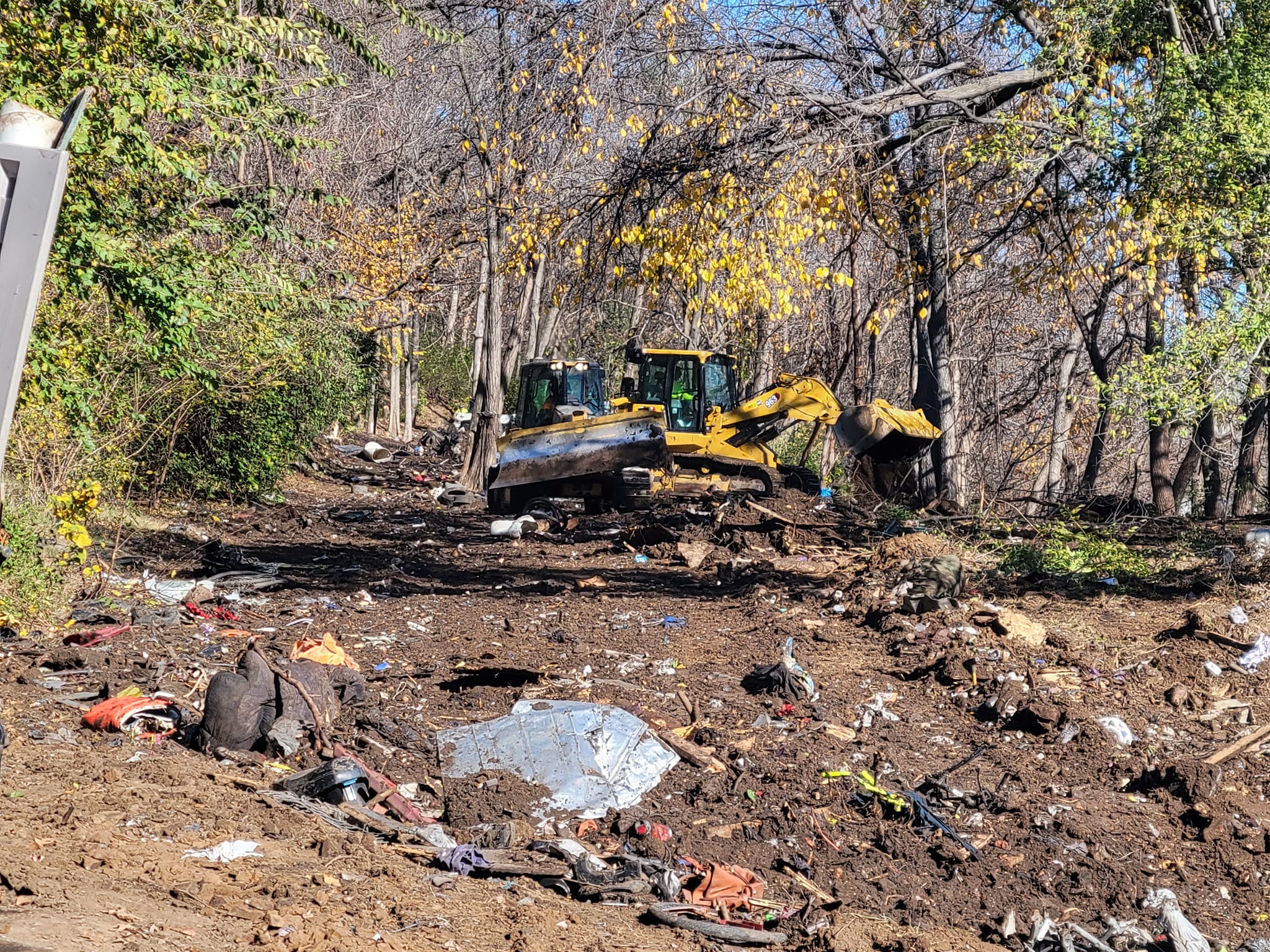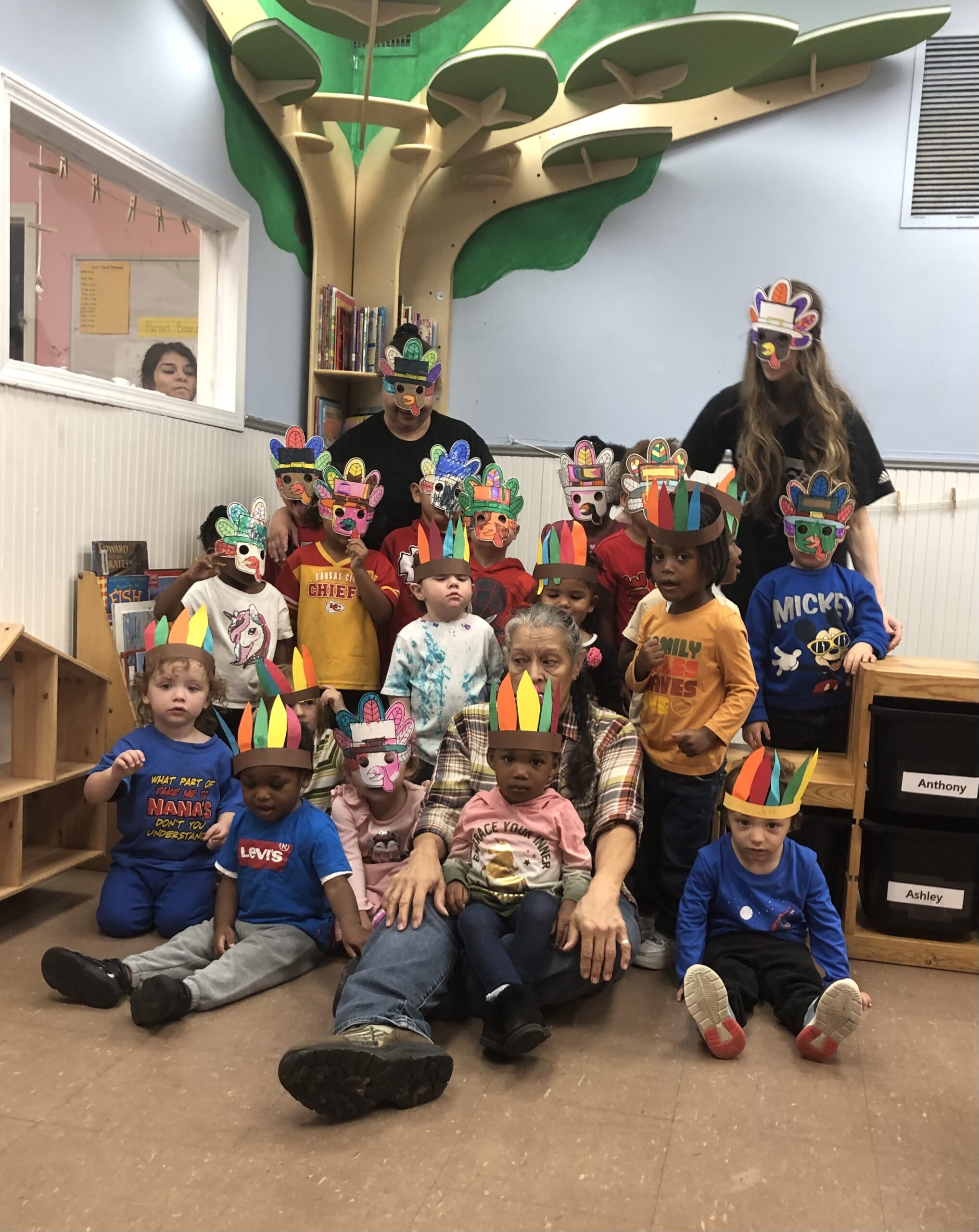
Abby Hoover
Managing Editor
Urban gardening comes in many forms and has obvious benefits, but in Northeast, one group is using gardening to improve the mental health of refugees.
Jewish Vocational Services (JVS) supports four community gardens in Northeast Kansas City through their Health and Wellness department, headed up by Global Gardens Coordinator Amy Ross.
“JVS was originally started back in the late 40s, early 50s, to try and help Holocaust survivors integrate into the community and just know how to fit in, how to make life work,” Ross said. “So it’s kind of evolved into an agency that helps anybody who is new to the community and needs help integrating.”
The Global Gardens program began in 2012 to promote self-sufficiency and economic sustainability, enhance community engagement, and expand food access to the wider community by developing community gardens. Today, the program works with newly-arrived refugees, as well as those who have lived here for a while. Ross said the primary mission of the Global Gardens program is to be a therapeutic place for people.
“[There is] lots of evidence about the findings of literally sticking your fingers in dirt or walking on soil,” Ross said.
Exposure to greenery, nature, and soil has been found to lower levels of depression, she said. The physical nature of gardening requires movement, yet incorporates mindfulness and a slowing down from the demands of modern life. Additionally, time spent working with nature increases problem-solving, memory, and personal skill sets, as gardeners respond to the ever-changing needs of a garden.
“The fact that this is a community garden brings the additional benefits of increased socialization — from at least six feet away, Ross said. “During these increased times of isolation, the Global Gardens program has felt more important than ever.”
The Global Gardens program is ideally a three-year cycle. During the winter months, gardeners attend required workshops and classes on pest control, choosing successful seasonal plants, composting and much more. JVS partners with local organizations like Kansas City Community Gardens for education, seeds and support.
“While it is a therapeutic program, a way for people to improve their access to food security, it’s also that, you know, the mission of JVS says we are trying to engage, integrate and empower people into their local communities,” Ross said.
Refugees who garden with JVS are from different regions of the world, including a variety of African countries and Myanmar. They arrive with a range of gardening and agricultural skills, many having previously grown food for themselves in their native country.
“One of the things we do at the beginning of each season, we do a simple depression screen, which is an evidence-based tool developed for use with refugee populations,” Ross said. “It’s just checking how people are doing mentally. And then at the end of the season, we do it again, so that’s a way for us to sort of mark how people have benefitted from their time here, but additionally it’s a way to find out right off the bat, ‘hey, is there other support we can help you with?’ And while it’s not my job to be that person, I can refer them to other folks in the agency.”
The program teaches refugees community garden etiquette that often differs from growing practices in other parts of the world. The hope is that at the end of the three years, they can integrate into community gardens in their neighborhoods with this knowledge. Northeast is home to many community gardens where refugees could potentially continue to grow once they have completed the Global Gardens program.
“Again, the concept of we’re trying to teach people this is the cultural way that people garden here, we say ‘This is yours, you can do whatever you want in yours,’ — barring that it’s organic, we do ask people to keep an organic garden — but don’t go into other peoples’ beds,” Ross said.
Ross loves getting to see the gardeners grow things that aren’t readily found here, sometimes sharing seeds or starters with their neighbors. She has also seen some getting creative to prop up tomato plants or arrange starters in their plots.
Initially, JVS closed the gardens under the stay at home order. When that was lifted, adjustments were made to keep gardeners safe, including adding a hand washing station and scheduling time slots for gardeners. Each bed is labeled with a different family name, and gardeners are responsible for their own plot. Signs are posted in the various languages that the gardeners speak to encourage social distancing, hand washing and mask wearing. Gardeners also received kits with the seeds they ordered that included gloves, masks and laundry soap for washing them. For those who don’t read, translators delivered materials to their homes and explained the new procedures.
“I think one of the other things that’s really stood out to me during this pandemic season has been the added importance of getting outside and being able to do something where, even though you don’t really have control of gardening so much as luck, but I think having the option to try to cultivate something,” Ross said.
The JVS Global Garden recently won a grant for its 3222 E. 7th St. garden to build a perimeter fence, put in a convenient watering system and add raised beds. They will need help from volunteers to build a table around the hand washing sink and to clear space to build new compost bins. This is the site gardeners are primarily using this year due to COVID-19.
The 5415 St. John Ave. site’s fruit trees have already been harvested this year for cherries and Asian pears, but a few apples remain.
“In light of pandemic, it’s also become a lot more difficult for people to access food, especially if kids are home from school, and so they were very, very excited they got to stay here,” Ross said of a family returning to the St. John garden.
JVS consciously chooses locations for Global Gardens in neighborhoods where potential gardeners live for convenience, with an added bonus of helping people feel a connection to their community.
“This lot is a wonderful example, it’s on a really main street, there’s not like anything amazing happening, just normal businesses on either side of it, and it adds to the community pride, I think, when a space is cleaned up, even when there’s not something as beautiful as a community garden, just having a space be clean and ready to be used, evidence has found that people take better care of the community in general,” Ross said of the St. John garden.
Summer’s harvest produced squash, tomatoes, cherries, pears, apples, a variety of greens and peppers, beans, okra and so much more. This season, muchicha has been a favorite among many gardeners, also known as amaranth. While some of the summer plants were planted late due to the pandemic, gardeners are already preparing their plots for the fall growing season by pulling out summer plants, spreading compost and growing starters. In the fall, Global Gardens coordinators are hoping to open back up their largest site, which has a greenhouse and an abundance of fruit trees.
Colorful zinnias poke out of a demonstration bed surrounded by tomatoes. Although not everything the gardeners grow is to eat, these flowers still have a purpose.
“One of the things we talk a little bit about in the workshops is companion planting, which is when you plant plants that you’re not necessarily going to eat like when you’re doing food planting, but that are going to help your other plant grow stronger or protect it from bugs and stuff,” Ross said.
The zinnias’ large, colorful flowers attract bees and destructive insects, who prefer them to the tomatoes’ smaller flowers.
Last year, 33 gardeners harvested over 5,830 pounds of produce and spent a total of 2,880 hours at the gardens over the growing season. This year looked a little different, with gardens being closed until June, but even with a late summer crop, gardeners have been successful.
In the past, produce that the gardeners harvest would be brought to a harvest feast with all the gardeners to share. Some would use their produce in favorite recipes to share with neighbors of different backgrounds.
Ross said neighbors and community members are curious about what’s going on, and are glad to see something growing. Those wanting to volunteer with JVS or Global Gardens can contact volunteer@jvskc.org.

















